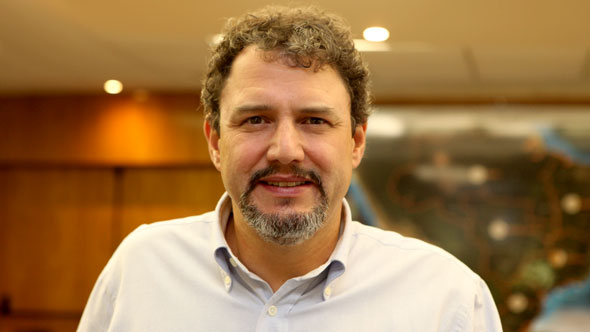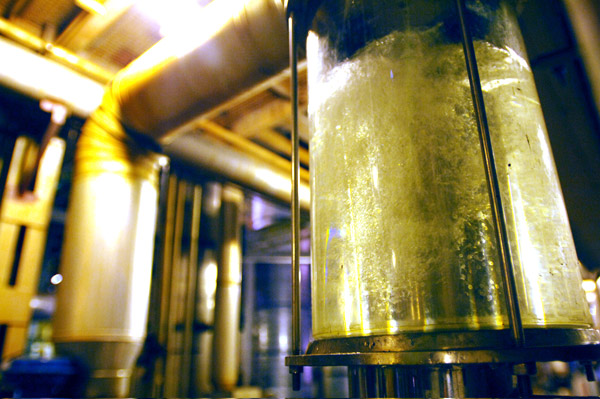Brazilian Ethanol Industry: UNICA’s View on Ethanol in Brazil
Marcos S. Jank, President and CEO of Brazilian Sugarcane Industry Association (UNICA)
Currently, Brazil has the most complete ethanol program in the world: ethanol is available in all service stations throughout Brazil and more than half of all cars on the road in Brazil are flex, as well as 90% of all new cars sold. Marcos Jank talks about the ethanol industry and how it has replaced 50% of gasoline consumption in Brazil.
Marcos S. Jank, President and CEO of Brazilian Sugarcane Industry Association (UNICA)

What are the main challenges for the ethanol industry?
Our industry is one of the most interesting and novel industries in the post-petroleum era. We are creating energy from photosynthesis, so we are transforming the capacity that tropical areas in the world have to convert sunlight, minerals and water in the soil, combined with high technology, into energy, low carbon products and alternatives to oil.
We, at Unica, really hope that ethanol will be a global trading commodity one day. Actually, ethanol started out as an agricultural policy for most countries, not as an energy or climate change policy. In the US, it is closely linked to corn producers, and in Europe to beet and wheat producers. Right now there are still subsidies and tariff protection in Europe, and we hope the EU will follow the example of the United States, which allowed its subsidies and import tariff to expire at the end of 2011. We believe free trade for ethanol will eventually happen around the globe.
Currently we have in Brazil the most complete ethanol program in the world: ethanol is available in all service stations throughout Brazil, and Flex Fuel cars are a great success. More than half of all cars on the road in Brazil are flex, as well as 90% of all new cars sold. Flex-Fuel cars are a reality here in Brazil, and ethanol has replaced 50% of gasoline consumption.
However, this is still a Brazilian experience; 90% of the ethanol produced here is sold in Brazil, while only 10% is exported. Countries are still protecting their markets with very high tariffs on imported ethanol, because countries want to protect their own farmers. Ethanol remains a part of agricultural policy, not a climate change or fuel policy. In our opinion, there is a huge contradiction there because if countries are serious about getting rid of oil, they should try to introduce alternatives to oil, and they are not doing that. Ethanol is a real alternative, and we are proving that here in Brazil, but it still faces major trade obstacles around the world.
What is happening with the industry internally?
We like to say that we have three phases in the development of the sugarcane industry. Phase one began in 1975 with the government trying to replace oil, and lasted until 1992. When oil prices fell, the government cut subsidies and ethanol almost disappeared. Phase two was the re-emergence of the program in 2003, when the auto industry made the decision to transform Brazil into the most important lab for Flex Fuel cars worldwide. Today, 13 automakers offer more than 90 models of Flex cars in Brazil. Now we are entering phase three, which focuses on Low Carbon Sugarcane Products and uses 20 different molecules extracted from sugarcane sucrose. We can produce plastics, fine chemicals and a variety of different products, but to do that we needed to produce much more cane.

Right now our industry is facing problems due to climate issues, consolidation and the financial crisis of 2008, which affected about a third of our companies. New groups entering the industry are buying existing groups that faced financial difficulties. We are in discussions with the government and the President to find ways to increase growth. We are growing only two or three percent a year, while we need to grow eight to ten percent a year. One of the problems we have today is the pricing policy for gasoline in Brazil; we compete directly with gasoline in all filling stations and gasoline prices are managed by the government through the state-controlled company, Petrobras.
The country is facing a wave of mergers, acquisitions, and consolidation. Can you talk about the industry’s structure? New players will be entering the market; will this be for the better or for worse?
I think these are very interesting developments, because this is an industry that is still very fragmented. It is attracting a number of newcomers, from major oil companies like Petrobras, Shell and BP, to chemical industries interested in plastics and fine chemicals. Electricity companies interested in bio-electricity, and even traditional food companies are entering the industry. It’s a truly fascinating industry because we are moving away from traditional products like sugar and into the world of energy, like fuel and electricity.
How do you envision the sector in ten years? What is your personal vision for ethanol? Do you believe that it can really replace oil?
I believe that our industry is one of the most interesting and novel industries in the post-petroleum era. We are really creating energy from photosynthesis, so we are transforming the capacity that tropical areas in the world have to convert sunlight, minerals and water in the soil, combined with high technology, into energy, low carbon products and alternatives to oil.
The experience that we have in our country can be copied in more than 100 countries that already produce sugarcane around the world. They can repeat the Brazilian experience, which would be more democratic than what is happening today, with just 20 countries that produce oil for the entire world. It is fascinating that all this can be done from sucrose. Moving forward, we can expect a major revolution coming from this industry.